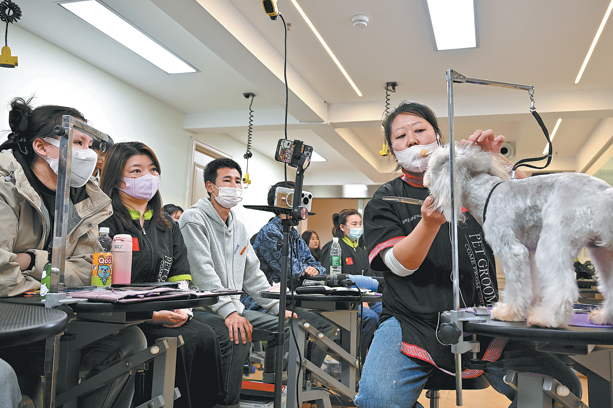Smaller cities can sometimes make a big difference


I recently joined some young friends for dinner. Unlike our routine gatherings when we would all be in high spirits, the atmosphere that evening was somber. The dinner had been organized to say goodbye to a young friend who, after working in Beijing for seven years, was packing his bags to take up a new job in Chongqing, Southwest China.
Dreaming of a promising career and good pay, the young man had, after graduating from university, taken up a job with a media group in Beijing. He was hardworking. But although his superiors and colleagues thought highly of him and valued his work, he soon found himself in a dilemma — on the one hand he liked his job and the team he worked with, but on the other hand he was barely able to make ends meet at his 8,000-9,000 yuan ($1,127-$1,268) monthly net income, forget raising a family.
University graduates are known to find better-paying jobs in Beijing and Shanghai than in most other cities. But the higher income is often not enough given the high rent and housing prices in big cities. My young friend's income — higher than the average in Beijing — was only enough for him to rent a small apartment near his company. In order to have some savings, he had two options — he could either rent a cheaper apartment nearly 20 kilometers away from his workplace, or share a small apartment with someone else, splitting the rental.
In his new job, where he will be teaching English at a public senior high school in Chongqing, his pay will nearly be the same as in Beijing. He can also expect local government subsidies when looking for housing there. In fact, he said that once he settles down in his new job and has some savings, he can — with some support from his parents and the help of a loan — even consider buying an apartment of his own there.
The average property price in Chongqing stood at 7,668 yuan per square meter (February data) as against 28,360.91 yuan per sq m in Beijing (March data) and 39,575 yuan per sq m in Shanghai (March data).
The young man is probably the sixth acquaintance I have seen off in the past decade or so. Despite being smart and ambitious, he and the others had to leave Beijing because of the high cost of living here, especially the skyrocketing housing prices. Till the time they were single, they were able to manage, but the high cost of living hit them when they thought of raising a family.
Of my five other young friends who have left Beijing, one inherited a toy-making business unit in Guangzhou, capital of Guangdong province; two became civil servants in county-level governments in Ningbo, Zhejiang province, and Lijiang, Yunnan province; one found a media job in Suzhou, Jiangsu province; and one is nurturing her baby in Chengdu, capital of Sichuan province. They seem to be enjoying their current, relaxed life.
Despite the fact that it is becoming increasingly difficult for young talents like my young friends to settle down in the big cities, each year thousands of young people keep flocking there in search of jobs.
A recent report by Beijing-based education consultancy MyCOS says that over the past three years, Beijing and Shanghai were the two most attractive cities for job-seeking undergraduates. The report said 82 percent of surveyed undergraduates who had found jobs in Beijing came from outside the city; for Shanghai the corresponding figure was 75 percent.
But, things might soon change for the better.
A number of new first-tier cities and many smaller cities are offering flexible and preferential career programs to talents. While boasting of lower costs of living and more relaxed living styles, some of these cities are offering free week-long accommodation to job seekers coming from outside, a loan of up to 500,000 yuan for their first entrepreneurial ventures and one-time subsidies of up to 100,000 yuan for a doctoral graduate.
Statistics show that thanks to talent-luring programs, populations in many new first-tier cities and some smaller cities have been rising in the past few years, against the backdrop of a shrinking population in China, especially in big cities such as Beijing and Shanghai.
Before long, many job seekers will find that smaller cities might be much better for their future, at least for some of them.
The author is former deputy editor-in-chief of China Daily.
kangbing@chinadaily.com.cn


































